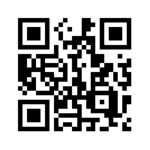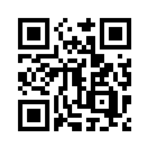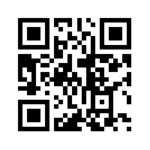A Literature Review Is Not Required When a Researcher Is Using Primary Research
Chapter 2: Getting Started in Research
Reviewing the Research Literature
- Define the inquiry literature in psychology and give examples of sources that are part of the inquiry literature and sources that are non.
- Depict and utilise several methods for finding previous research on a particular research thought or question.
Reviewing the research literature means finding, reading, and summarizing the published enquiry relevant to your question. An empirical inquiry study written in American Psychological Association (APA) style ever includes a written literature review, merely information technology is important to review the literature early on in the research procedure for several reasons.
- It can assistance you lot turn a research idea into an interesting research question.
- Information technology can tell you if a research question has already been answered.
- Information technology tin can help you evaluate the interestingness of a inquiry question.
- Information technology can requite you ideas for how to deport your own study.
- Information technology can tell you how your study fits into the inquiry literature.
What Is the Research Literature?
The in any field is all the published research in that field. The research literature in psychology is enormous—including millions of scholarly manufactures and books dating to the beginning of the field—and information technology continues to grow. Although its boundaries are somewhat fuzzy, the research literature definitely does not include self-help and other pop psychology books, dictionary and encyclopedia entries, websites, and similar sources that are intended mainly for the general public. These are considered unreliable because they are not reviewed past other researchers and are often based on little more than common sense or personal feel. Wikipedia contains much valuable data, simply the fact that its authors are bearding and may not have any formal training or expertise in that bailiwick area, and its content continually changes makes it unsuitable as a ground of sound scientific inquiry. For our purposes, information technology helps to define the research literature every bit consisting almost entirely of two types of sources: manufactures in professional journals, and scholarly books in psychology and related fields.
Professional Journals
are periodicals that publish original research manufactures. There are thousands of professional journals that publish enquiry in psychology and related fields. They are commonly published monthly or quarterly in individual issues, each of which contains several articles. The issues are organized into volumes, which normally consist of all the issues for a agenda year. Some journals are published in hard copy merely, others in both difficult re-create and electronic form, and all the same others in electronic form simply.
Most manufactures in professional journals are i of two basic types: empirical enquiry reports and review articles. depict 1 or more new empirical studies conducted past the authors. They introduce a enquiry question, explain why information technology is interesting, review previous research, describe their method and results, and draw their conclusions. summarize previously published research on a topic and usually nowadays new ways to organize or explain the results. When a review article is devoted primarily to presenting a new theory, it is oftentimes referred to as a .

Most professional journals in psychology undergo a process ofdouble-blind peer review. Researchers who desire to publish their piece of work in the periodical submit a manuscript to the editor—who is generally an established researcher too—who in turn sends it to two or three experts on the topic. Each reviewer reads the manuscript, writes a critical but effective review, and sends the review back to the editor along with his or her recommendations. The editor so decides whether to accept the commodity for publication, enquire the authors to make changes and resubmit information technology for further consideration, or reject it outright. In any case, the editor forwards the reviewers' written comments to the researchers so that they tin revise their manuscript accordingly. This entire process is double-blind, as the reviewers do not know the identity of the researcher(southward), and vice versa. Double-bullheaded peer review is helpful because it ensures that the work meets basic standards of the field earlier it can enter the research literature. However, in order to increase transparency and accountability some newer open access journals (eastward.grand., Frontiers in Psychology) utilize an open peer review procedure wherein the identities of the reviewers (which remain concealed during the peer review process) are published alongside the journal article.
Scholarly Books
are books written past researchers and practitioners mainly for use by other researchers and practitioners. A is written past a unmarried author or a modest grouping of authors and usually gives a coherent presentation of a topic much similar an extended review article. have an editor or a pocket-size group of editors who recruit many authors to write separate chapters on different aspects of the aforementioned topic. Although edited volumes can also requite a coherent presentation of the topic, it is not unusual for each chapter to take a different perspective or even for the authors of different capacity to openly disagree with each other. In general, scholarly books undergo a peer review process similar to that used by professional journals.
Literature Search Strategies
Using PsycINFO and Other Databases
The primary method used to search the research literature involves using one or more than electronic databases. These include Bookish Search Premier, JSTOR, and ProQuest for all academic disciplines, ERIC for education, and PubMed for medicine and related fields. The most important for our purposes, all the same, is PsycINFO, which is produced by the APA. is so comprehensive—roofing thousands of professional journals and scholarly books going back more than 100 years—that for most purposes its content is synonymous with the research literature in psychology. Like most such databases, PsycINFO is normally available through your academy library.
PsycINFO consists of individual records for each article, book chapter, or book in the database. Each tape includes basic publication information, an abstract or summary of the work (like the one presented at the commencement of this chapter), and a list of other works cited by that piece of work. A computer interface allows entering ane or more than search terms and returns any records that contain those search terms. (These interfaces are provided by different vendors and therefore tin expect somewhat different depending on the library you utilise.) Each record also contains lists of keywords that describe the content of the work and also a listing of index terms. The index terms are especially helpful because they are standardized. Research on differences between women and men, for instance, is always indexed under "Human Sex Differences." Inquiry on notetaking is always indexed under the term "Learning Strategies." If you do not know the appropriate index terms, PsycINFO includes a thesaurus that can help y'all find them.
Given that there are nearly four million records in PsycINFO, you lot may have to attempt a diverseness of search terms in dissimilar combinations and at different levels of specificity before yous notice what you are looking for. Imagine, for example, that you are interested in the question of whether women and men differ in terms of their ability to call back experiences from when they were very young. If you were to enter "memory for early experiences" as your search term, PsycINFO would render only six records, most of which are not particularly relevant to your question. Withal, if you were to enter the search term "memory," it would render 149,777 records—far too many to wait through individually. This is where the thesaurus helps. Entering "memory" into the thesaurus provides several more specific alphabetize terms—one of which is "early memories." While searching for "early memories" among the index terms returns ane,446 records—still as well many also wait through individually—combining it with "man sex differences" equally a 2d search term returns 37 articles, many of which are highly relevant to the topic.

Depending on the vendor that provides the interface to PsycINFO, you lot may be able to save, impress, or eastward-post the relevant PsycINFO records. The records might fifty-fifty comprise links to full-text copies of the works themselves. (PsycARTICLES is a database that provides full-text access to articles in all journals published by the APA.) If not, and yous desire a copy of the work, you lot will have to discover out if your library carries the periodical or has the volume and the hard copy on the library shelves. Exist sure to ask a librarian if you demand help.
Using Other Search Techniques

In addition to entering search terms into PsycINFO and other databases, there are several other techniques you can employ to search the research literature. First, if you have one good commodity or book chapter on your topic—a recent review commodity is all-time—you can await through the reference list of that article for other relevant manufactures, books, and volume capacity. In fact, y'all should practise this with any relevant article or volume chapter you find. You tin can also outset with a classic article or volume chapter on your topic, find its record in PsycINFO (by entering the author's name or article'due south championship as a search term), and link from there to a list of other works in PsycINFO that cite that classic article. This works because other researchers working on your topic are likely to be aware of the classic article and cite it in their own work. Yous can too practise a full general Internet search using search terms related to your topic or the name of a researcher who conducts inquiry on your topic. This might lead you directly to works that are part of the research literature (e.g., articles in open-access journals or posted on researchers' own websites). The search engine Google Scholar is particularly useful for this purpose. A general Cyberspace search might also atomic number 82 you to websites that are not part of the research literature but might provide references to works that are. Finally, yous can talk to people (east.thou., your instructor or other faculty members in psychology) who know something well-nigh your topic and tin can suggest relevant articles and book chapters.
What to Search For
When yous practice a literature review, yous need to be selective. Not every article, book chapter, and volume that relates to your enquiry thought or question will be worth obtaining, reading, and integrating into your review. Instead, you want to focus on sources that help you do four basic things: (a) refine your research question, (b) place appropriate research methods, (c) place your research in the context of previous research, and (d) write an constructive research report. Several basic principles tin can assistance y'all find the nearly useful sources.
First, it is best to focus on recent inquiry, keeping in listen that what counts as recent depends on the topic. For newer topics that are actively being studied, "contempo" might mean published in the past year or two. For older topics that are receiving less attending right now, "recent" might mean within the past 10 years. Yous will become a feel for what counts as recent for your topic when you lot kickoff your literature search. A good general rule, still, is to offset with sources published in the by 5 years. The main exception to this dominion would be classic articles that turn up in the reference list of most every other source. If other researchers call back that this work is important, fifty-fifty though information technology is quondam, then by all means you should include it in your review.
Second, yous should look for review manufactures on your topic because they volition provide a useful overview of it—often discussing important definitions, results, theories, trends, and controversies—giving you a good sense of where your own enquiry fits into the literature. Yous should also look for empirical inquiry reports addressing your question or similar questions, which can requite y'all ideas about how to operationally ascertain your variables and collect your data. As a general rule, information technology is practiced to apply methods that others have already used successfully unless you have skilful reasons non to. Finally, you lot should await for sources that provide information that can help you argue for the interestingness of your inquiry question. For a written report on the effects of cell phone apply on driving ability, for example, you might look for information about how widespread cell phone employ is, how frequent and plush motor vehicle crashes are, so on.
How many sources are enough for your literature review? This is a difficult question considering it depends on how extensively your topic has been studied and too on your own goals. One study found that across a diverseness of professional journals in psychology, the boilerplate number of sources cited per article was virtually l (Adair & Vohra, 2003)[1]. This gives a crude idea of what professional researchers consider to be adequate. As a educatee, you might be assigned a much lower minimum number of references to use, but the principles for selecting the most useful ones remain the same.
- The inquiry literature in psychology is all the published research in psychology, consisting primarily of articles in professional person journals and scholarly books.
- Early on in the research process, it is important to bear a review of the enquiry literature on your topic to refine your research question, identify advisable inquiry methods, place your question in the context of other research, and prepare to write an effective research report.
- There are several strategies for finding previous inquiry on your topic. Among the best is using PsycINFO, a estimator database that catalogs millions of articles, books, and book chapters in psychology and related fields.
- Practice: Use the techniques discussed in this section to find 10 journal manufactures and book capacity on i of the following inquiry ideas: memory for smells, aggressive driving, the causes of narcissistic personality disorder, the functions of the intraparietal sulcus, or prejudice confronting the physically handicapped.
- Sentinel the following video clip produced by UBCiSchool near how to read an bookish paper (without losing your mind):

Video Attributions
- "Sample PsycINFO Search on EBSCOhost" by APA Publishing Preparation. Standard YouTube Licence.
- "Using Google Scholar (CLIP)" by clipinfolit. CC By (Attribution)
- "How to Read an Bookish Newspaper" by UBCiSchool. CC BY (Attribution)
Source: https://opentextbc.ca/researchmethods/chapter/reviewing-the-research-literature/
0 Response to "A Literature Review Is Not Required When a Researcher Is Using Primary Research"
Post a Comment